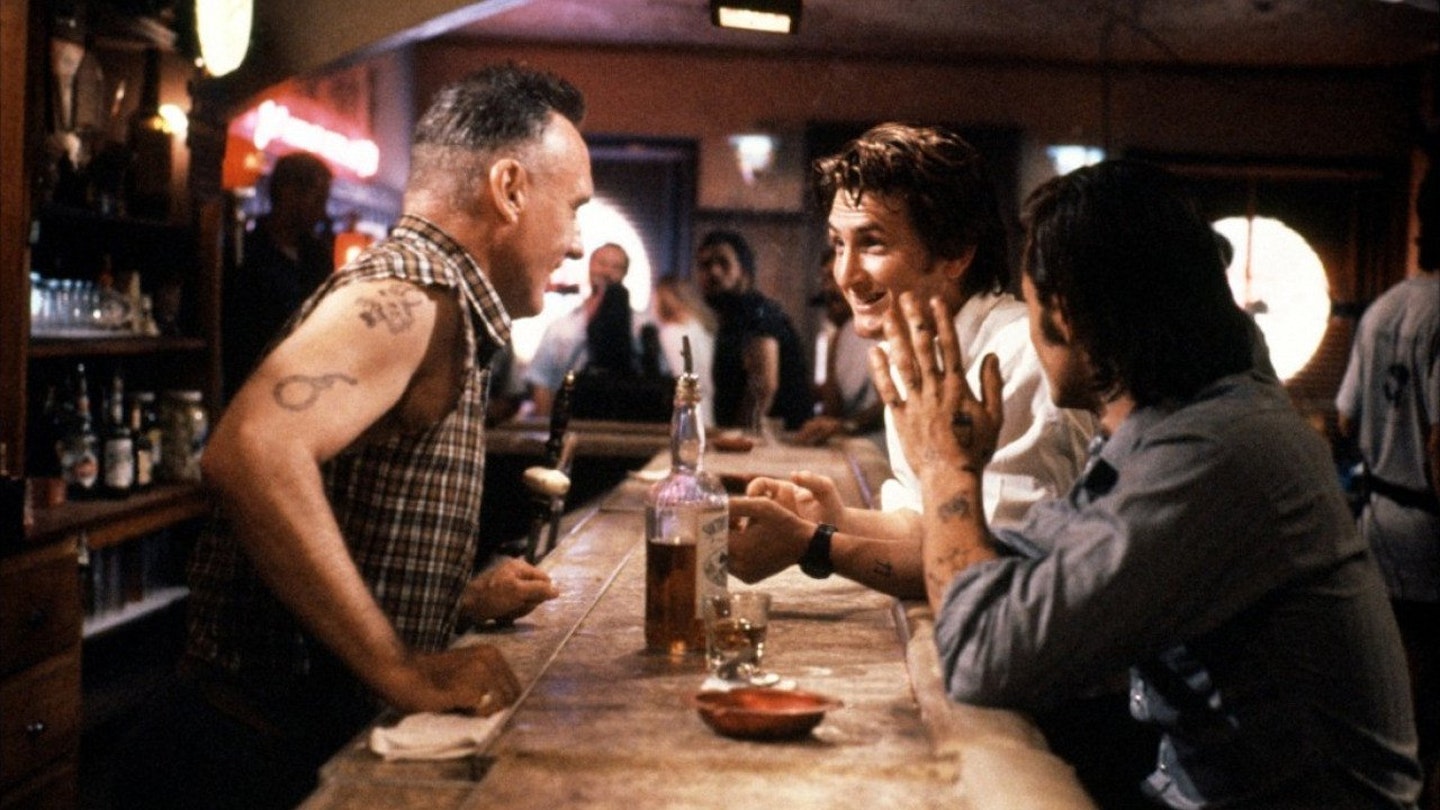In an effort to prove his life isn't all nightclub brawls and ten-minute marriages, Sean Penn here makes his debut as a writer-director, signalling his intellectual credentials by adapting for the screen a work by one of the age's deepest thinkers, Bruce Springsteen. Starting from the song Highway Patrolman, Penn spins a story set in the early '70s, about two brothers on roughly opposite sides of the law in snowy Nebraska. Joe (Morse) is a solemn sheriff married to a gorgeous Mexican (Valeria Golino), deeply responsible and thoughtful, while Frank (Mortensen) is a tattooed tearaway, just back from Nam with a hippie chick girlfriend (Arquette) and a mean streak. For a while it looks as if Frank will reform and settle down, but that mean streak just keeps streaking and brooding violence looks long overdue to erupt in a pretty obvious finale.
Surprisingly, Penn displays some signs of competence behind the megaphone, turning out a nice-looking, well-acted, unusually restrained picture which constantly bites down on the overheated melodramatics that have been the trademark of his acting style. However, he makes serious miscalculations with his not-very-interesting script, protracting a story which seemed trite in a three-minute song into two and a quarter hours' worth of predictable characters and plot developments. Often, you can see the next twist coming miles away: the brothers' Dad (Charles Bronson, in a rare character role that should be more moving than it is) commits suicide on schedule, Arquette gets pregnant just in time to precipitate a momentary commitment to the straight life by Mortensen, and Dennis Hopper pops up as a Satanic bar owner to cue the expected downturn at the end.
Penn has rather strangely set out to make a '70s movie - perhaps remembering such song-to-film precedents as Alice's Restaurant, Ode to Billy Joe - and dedicating it to Hal Ashby and John Cassavetes. While he has all the heavyweight America-gone-sour themes and confused characters found in roadside movies like Five Easy Pieces, Electra Glide In Blue or Thieves Like Us, he misses the eccentric and exciting spikiness that made them more than just gloomfests.
